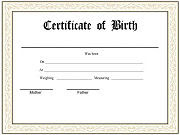I never like to move without performing a considerable purge. These days, I have my own things to sort through as well as those of three dead people.
The last time I moved, I automatically packed all of my father’s personal papers; I had no idea if I would need them again. Six years have passed since he died, however, so I figure it’s okay to discard old bank statements and checkbooks. I will hold on to the tax returns, though.
One early evening, when I was first getting used to the idea that my mother was dying, I dug out one of my parents’ wedding pictures. This is them, I told my husband, thrusting the picture into his hands. This is what they looked like.
My mother got married in a sea foam mini-dress—mod for 1970. My father wore a plain gray suit. The world depicted in that image is now accessible exclusively through whatever account I cobble together.
Three months before my mom died, our great-aunt Lois died, too. My mother was Lois’s only close relative. These events have made me an archivist. I have turned into a depository for all of the drips and drabs of their individual existences: passports, diaries, leases, utility bills, medical records, high school yearbooks.
Lois never married and had few close friends. My father was an eccentric hermit. My mother, the social butterfly of the group, has no one but me, most likely, to take anything stronger than a passing interest in the minutiae of her life. Sometimes I’ve felt myself to be swimming in all of their folders, books, and papers, spinning in a whirlpool of their Polaroids and daguerrotypes.
I have my mother’s diaries, but I’m wary of reading them. I would rather study her check register or her address book. I hold on to them, though—it seems rude to discard someone’s diary.
Last Saturday afternoon, I sat cross-legged on the floor of my office and spread out a pile of my mother’s files. I scanned the cover of a tattered manila folder with writing on it. My mother had itemized the contents of a safety deposit box—deeds, bonds, the divorce decree. The last line read, in my mom’s careful penmanship, “Restraining order, 1983.”
The order must have been against my father—he’s the logical choice. But why did she keep it in the safety deposit box? Where is it now, and what was it for? I both want to know and don’t want to know.

Lois’s paper trail I keep mainly out of historical interest. Because of her, I have the 1928 handbook for the women’s student government organization of the University of Pennsylvania, for example. (I read it hoping to find something about young ladies’ conduct, but to no avail.) She had multiple copies of her birth certificate, too, so many that I wonder if people used to have to get one to renew a passport—Lois traveled. Pennsylvania birth certificates apparently used to be static forms that a clerk filled out by hand. It used to have boxes to check for “legitimate” or “illegitimate.” Some time during the 1950s, however, they appear to have dropped that question.
During this last purge, I found a letter to Lois from a woman named Dottie. She was returning some papers—someone had been to the Library of Congress to do genealogical research. Lois hadn’t made this trip, but she had the notes.
The notes were typed and detailed; whoever went to the library must have brought a typewriter. The oldest notation is from a census taken in 1797 in Maryland. The separate properties of a brother and a sister are inventoried. Each sibling had a farm, some cottages, carriages, and slaves--the sister fourteen, the brother four. My eyes lingered on that word and those numbers.
Once these archival boxes have found a new home (probably in a closet or a basement), I’m tempted to tear a sheet of paper from a legal pad and attach the following message:
Dear Future Child,
You may or may not be interested in any of this. If you are, you are welcome to read about your grandparents, who were both relatively unstable, and who both died fairly young. You can also get to know your great-great aunt, who was, by all accounts, a miserable, hoarding old lady. (Legitimate, though.)
You will also notice that we are the descendents of slave owners.
Feel free to get rid of it all. Your mother was funny about material things, but she knew that not everyone gets hypnotized by the past like she did.
(She would appreciate if you held on to her computer files, however, even if you never open them.)
***
[Meta note: Because I'm heading to Pennsylvania tomorrow in order to teach the gifted kids, and because almost immediately after that I'll be penetrating the mystery of the Midwest (moving to Ohio), I'm afraid that I won't be able to post much for the next month. I will try to eek one out here and there--I'm generous (and self-centered) like that. Thank you for reading! I'll check in from either the 6-1-0 or the 4-1-9.]



2 comments:
Lauren, this is so great! It's like a compact, yet still meandering essay.
Thank you very much, Jane!
Miss you, by the way.
Post a Comment